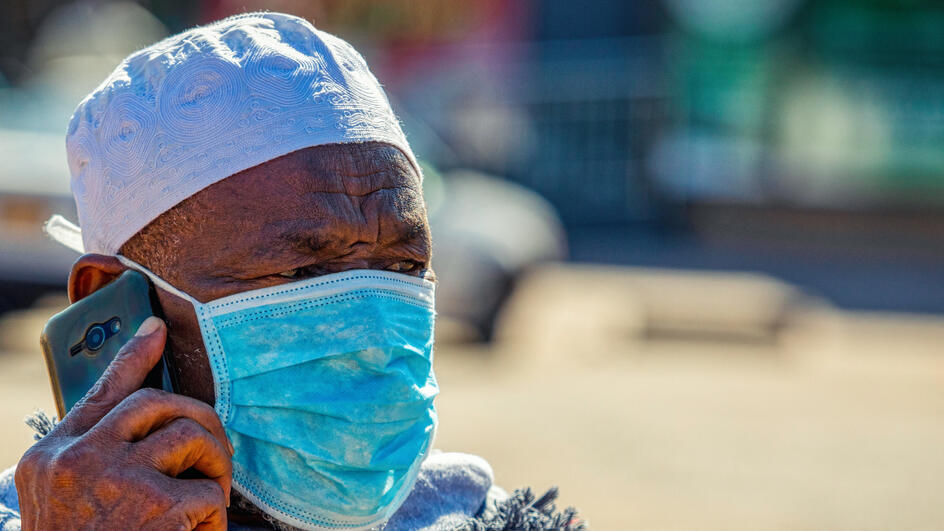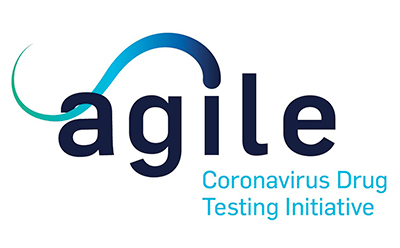

A new international trial to assess whether high doses of the antiparasitic drug nitazoxanide could help treat patients with COVID-19 has begun in South Africa.
Researchers at the University of Liverpool and Liverpool School of Tropical Medicine (LSTM) are leading the trial as part of the ground-breaking COVID-19 drug testing platform, AGILE.
To tackle the COVID-19 pandemic, there is an urgent need for therapeutic interventions to compliment global vaccination programmes. The repurposing of existing drugs is a key strategy in this search as it involves less time and cost than developing new ones. Likewise, resulting therapeutic regimens could be rapidly made accessible in low and middle-income countries.
Nitazoxanide, a clinically approved and affordable to manufacture antiparasitic drug, has previously shown broad-spectrum antiviral activity against coronaviruses and was identified as a promising candidate for repurposing at a higher dose by researchers at the University of Liverpool’s Centre of Excellence in Long-acting Therapeutics (CELT).
Pharmacokinetic modelling and preclinical validation work by the team found that the doses of nitazoxanide needed to inhibit SARS-CoV-2 replication may be achievable in humans but at doses higher than those currently approved for treating parasite infections.
Now, following successful preclinical and Phase Ia testing in healthy participants at the NIHR Liverpool and Broadgreen Clinical Research Facility in Liverpool1, AGILE has opened its first international site at the Desmond Tutu Health Foundation at the University of Cape Town in South Africa for trials in people who have tested positive for COVID-19 with mild to moderate symptoms in the community.
The participants will be given 1500mg of nitazoxanide twice a day for seven days and will be closely monitored to confirm that the dose tested in healthy people is still safe and well tolerated in people with mild COVID-19. The levels of the virus present in their bodies will also be monitored, and if the trial shows a benefit to patients, the treatment will be moved into a larger Phase II trial in South Africa.
The trial will be coordinated by the Global Health Trials Unit and LSTM. AGILE’s partners for the study in South Africa are the Desmond Tutu Health Foundation at the University of Cape Town and Ezintsha at the University of the Witwatersrand.
The trial is being funded by Unitaid as part of a £2.2 million award to AGILE to support the COVID-19 response.
Dr Tom Fletcher, AGILE’s international lead at LSTM, said: “This is an exciting new trial that builds on existing research collaborations between Liverpool and South Africa. High dose nitazoxanide has been evaluated for safety in the UK, and now has the potential to be a game-changer for patients with COVID-19. It is also a medication that can be scalable worldwide at low-cost, ensuring global equity of access to the most effective treatments.”
Professor Andrew Owen, Director of CELT at the University of Liverpool, said: “The past 18 months have seen many repurposing candidates evaluated in clinical trials at their approved dose without robust preclinical evidence, with mixed results. While the utility of any medicine can only be ultimately determined in robustly conducted clinical trials, our modelling and preclinical studies support the dose of nitazoxanide being sufficiently high so as to provide a definitive outcome of its potential in COVID-19.”
Dr Catherine Orrell, Principal Investigator at the Desmond Tutu Health Foundation, University of Cape Town, said: “This is a critical study in our resource-limited context; working towards an affordable oral treatment for COVID-19 where vaccine access remains limited is of the utmost importance.”
Dr Nomathemba Chandiwana, Principal Investigator at Ezintsha, University of the Witwatersrand, said: “The repeated waves of the COVID-19 pandemic have highlighted the necessity for effective and accessible therapeutics for COVID-19 patients, especially in Africa where vaccine access is limited. That’s why I am excited to be part of the important collaborative study.”
Dr Lauren Walker, Associate Director of the NIHR Clinical Research Facility at Liverpool University Hospitals NHS Foundation Trust, said:“We are really proud to have rapidly conducted the important safety trials in healthy participants at the Liverpool CRF to ensure the safety and tolerability at this dose supports progression into patient trials."
An AGILE video explainer for the high dose nitazoxanide trial:
About AGILE
The AGILE platform is a ground-breaking collaboration between the University of Liverpool, Liverpool School of Tropical Medicine, NIHR Liverpool and Broadgreen Clinical Research Facility based at the Royal Liverpool University Hospital, the NIHR Southampton Clinical Trials Unit at the University of Southampton, University of Cambridge and the UK Clinical Research Facility Network. The platform aims to rapidly identify therapies that have the potential to be used to treat COVID-19 patients and bring them into early phase clinical trials.
The AGILE nitazoxanide trial is supported by Unitaid. The AGILE platform is supported by the Wellcome Trust, the UK Medical Research Council and UKRI.
Follow us at @LivAgile